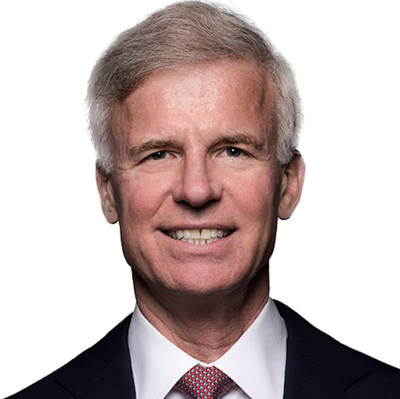Young Americans spend 4.8 hours daily on social media. On the surface, this may seem unremarkable — a reflection of the digital age.
But when 40% of those 18 to 29 believe that force is a justifiable response when traditional politics falls short, we must ask: How does one fuel the other? This generation is coming of age in an era shaped by algorithms and digital echo chambers, where engagement is often driven by outrage and division. Without intervention, this escalating drift toward extremism will seep into every corner of civic life, reshaping discourse, governance and the fabric of democracy. Today’s social media landscape has become less a forum for dialogue and more a battleground.

Algorithms thrive on conflict, amplifying division and those who profit from outrage, making meaningful dialogue increasingly rare. Engineered to prioritize engagement over understanding, these encourage our worst impulses, keeping users active through content that provokes strong emotional reactions, particularly anger toward opposing groups. Yet, while social media thrives on division, it also holds the potential to foster a deeper, more meaningful connection.
These platforms were once envisioned as a digital town square — democratic, accessible and ideal for public discourse; they can still serve that purpose. To reclaim them, we must understand the forces shaping our feeds and approach our engagement with greater intention. Consider the rise of disinformation, a stark example of social media’s unintended consequences.
A Yale study found that “reward systems of social media platforms are inadvertently encouraging users to spread misinformation.” When virality is valued over veracity, truth becomes elusive, and shared realities fracture. This isn’t just the catalyst for internet arguments — it corrodes institutions, eroding trust in our democratic system and civic norms.
A healthy democracy depends on a widespread belief in the legitimacy of its laws, traditions and governing institutions. When misinformation flourishes unchecked — particularly in moments of moral outrage — it fuels distrust of our political institutions. So, too, does the illusion that civic engagement begins and ends with a “like” or fleeting comment.
These platforms learn from our behavior, so they will change only when we change. To rebuild a civil public square, Americans must be intentional about what we consume, how we engage and where we seek information. This could mean following diverse perspectives, using platforms as a launching point for deeper inquiry or stepping beyond algorithmically curated content.
Restoring thoughtful discourse requires more than rethinking how we engage online; it demands reclaiming time for more substantive pursuits. Reading rigorous journalism, participating in in-person and online discussions, consuming or producing thoughtful long-form content and even joining social clubs or community meetings all help broaden our perspectives. True civic engagement happens not only in our feeds but also in the relationships and real-world spaces where nuanced conversations can flourish.
Different media platforms offer different strengths. Social media excels at real-time information-sharing, but traditional journalism upholds editorial standards prioritizing accuracy over virality metrics. Meanwhile, a growing number of independent media outlets, research institutions and public discussion platforms work to counteract polarization, providing spaces for thoughtful deliberation.
Beyond digital discourse, face-to-face interactions — whether in civic groups, places of worship or town halls — encourage accountability and foster the kind of respectful dialogue that social media so often lacks. Of course, no source is without bias. This is why responsible civic engagement must follow President Ronald Reagan’s “trust, but verify” approach — one that balances good faith with discernment.
To “trust” means engaging one another in good faith, whether reading a news article, commenting on a social media post or conversing with a colleague or neighbor. To “verify” entails holding ourselves and others to the standard of truth and resisting the lure of convenient narratives. Strong democracies are built on compromise, not coercion.
Our daily choices — online and face to face — can reinforce this principle or erode it. The power to shape the public square remains in our hands. The question is, how will we use it? Frederick J.
Ryan Jr. is the director of the Ronald Reagan Center on Civility and Democracy. He wrote this for InsideSources.
com ..
Technology

Commentary: Social media thrives on division. We can change that.

Young Americans spend 4.8 hours daily on social media. On the surface, this may seem unremarkable — a reflection of the digital age. But when 40% of those 18 to 29 believe that force is a justifiable response when traditional...















